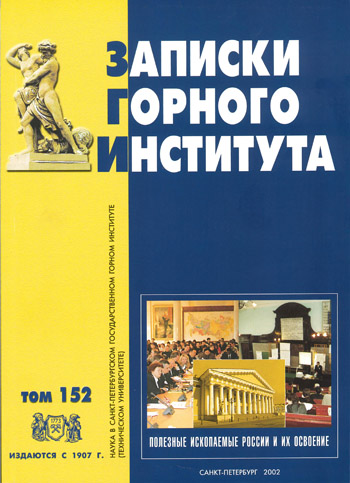Impact of roasting and leaching on changes in the phase composition of the main components of copper electrolyte slurry
- Postgraduate student G.V. Plekhanov Saint Petersburg State Mining Institute
Abstract
Medelectrolyte sludge is the main concentrator of rare and noble metals, the processing efficiency of which is determined by the depth of extraction of valuable components. The final operation of sludge processing is smelting for gold-silver alloy. According to the industrial practice, smelting leads to 05-07% of gold, 4-5% of silver and 30% of tellurium in the circulating dust, slag and scrap, which are utilized in the own production and accompanied by loss of noble and rare metals. The aim of the present study is to increase the recovery of gold-silver alloy smelting exclusion. The phase analysis of the main components of copper electrolyte slurry using chemical and X-ray microanalysis was carried out. The influence of the oxidation roasting temperature on the ratio of the phase components of the slurry has been established. It has been shown that silver in the sludge cinder is present in three forms sulfate, chloride and in the metallic form. The concentration of silver sulfate increases with increasing firing temperature, the process of silver sulfatization occurs due to lead sulfate present in the slime. On the basis of the obtained information the ways of creation of hydrometallurgical technology of sludge processing are outlined.
